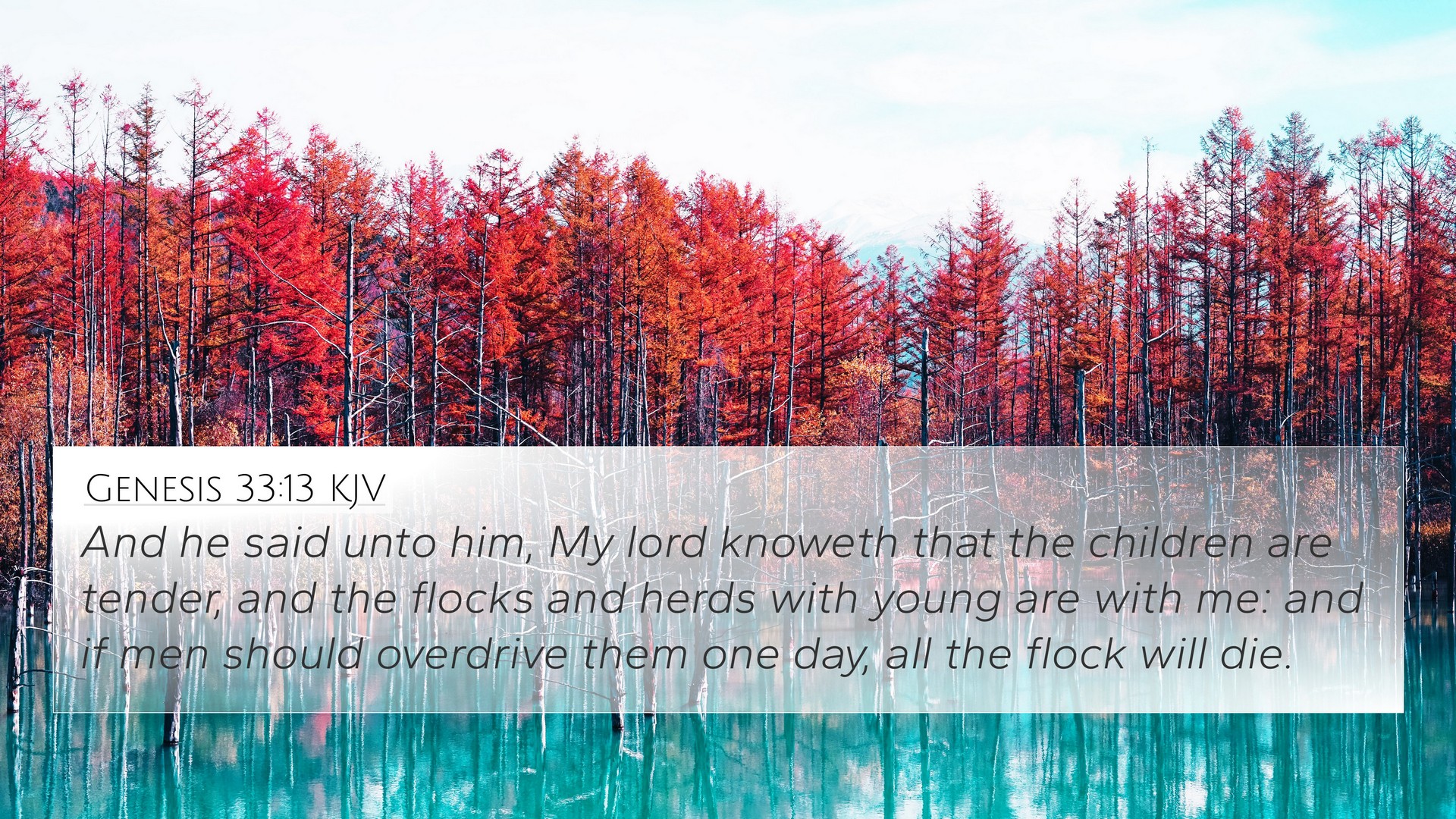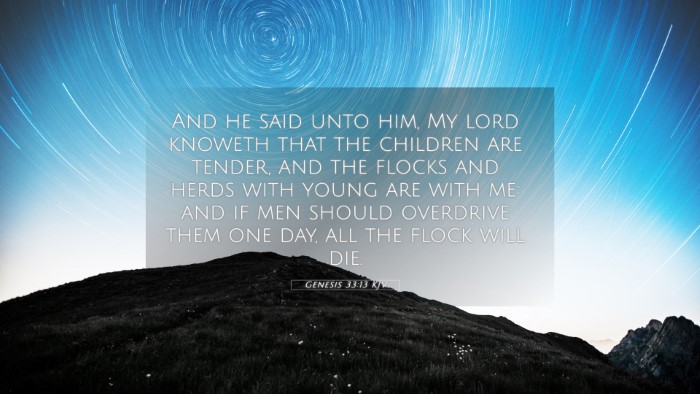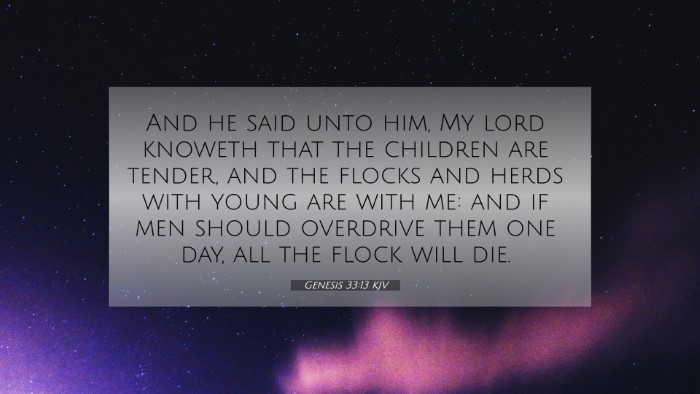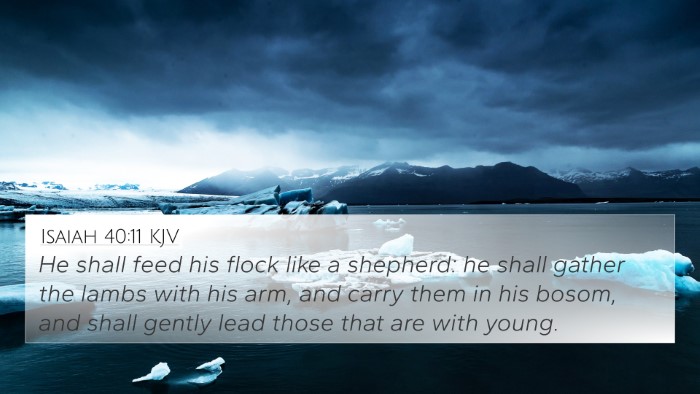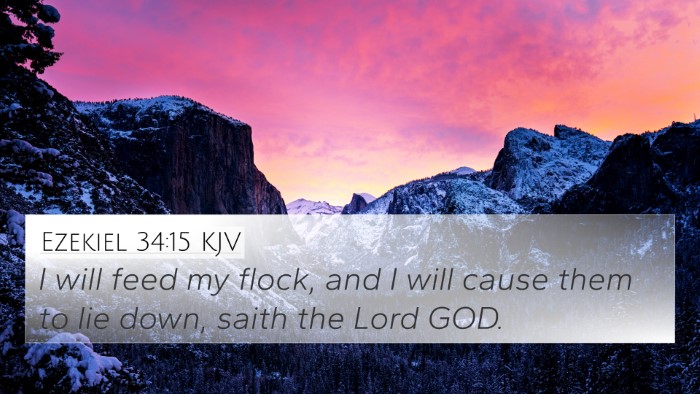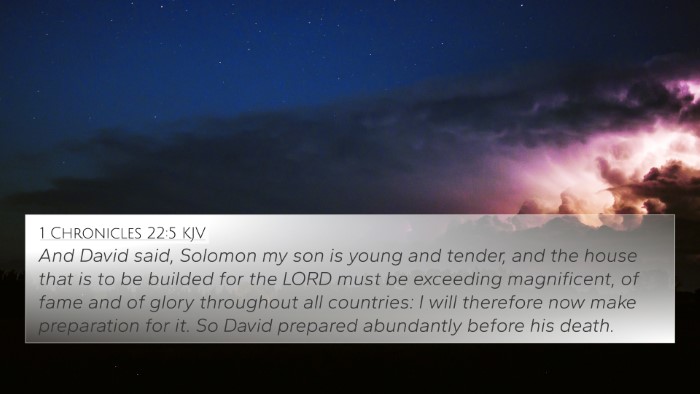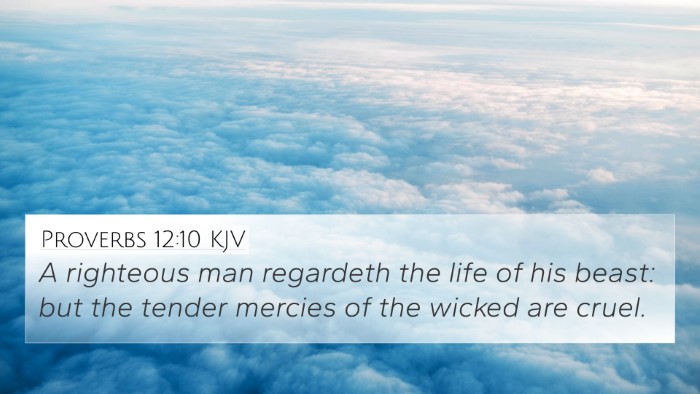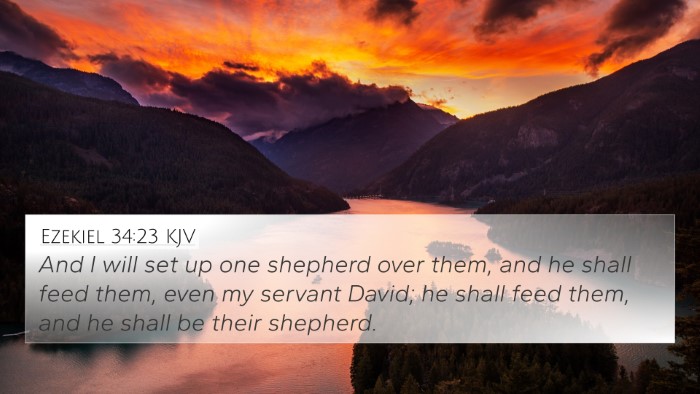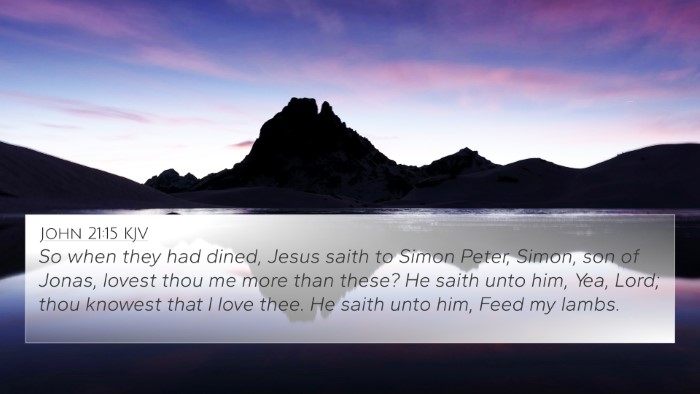Understanding Genesis 33:13
Genesis 33:13 states, “But Jacob said to him, ‘My lord knows that the children are weak, and the flocks and herds which are nursing are with me. If the men should drive them hard one day, all the flock will die.’” This verse is part of the narrative where Jacob meets Esau after many years of separation due to past conflicts. The significance of this verse lies in Jacob's concern for his family and livestock, as well as his strategic approach to reconciliation.
Insights from Public Domain Commentaries
Matthew Henry's Commentary
Matthew Henry emphasizes Jacob's thoughtful nature, highlighting how he prioritizes the well-being of his children and livestock. In his meeting with Esau, Jacob displays both humility and a keen awareness of the fragile state of his family. This shows a protective instinct driven by love and concern.
Albert Barnes' Notes on the Bible
Albert Barnes offers insights into the implications of Jacob's statement. He notes that Jacob is aware of the potential dangers that a hasty journey poses to his vulnerable flocks and family. His tactful response demonstrates wisdom in leadership, indicating the importance of considering the strengths and weaknesses of those we are responsible for.
Adam Clarke's Commentary
Adam Clarke elaborates on the Greek implications of the word "weak," interpreting it as "feeble" or "tender." Clarke suggests that this description signifies the necessity for a gentle and careful approach in leading the family, as they have been through much hardship, further reflecting Jacob's understanding of their plight.
Thematic Connections
Genesis 33:13 invites various thematic connections throughout the Bible, showcasing more profound insights into family dynamics, reconciliation, and protective leadership. Below are some notable cross-references that relate to this verse:
- Exodus 34:24: God promises protection to the vulnerable, similar to Jacob's care.
- Proverbs 27:23: "Be thou diligent to know the state of thy flocks and look well to thy herds," reinforcing familial responsibility.
- Psalms 78:72: Describes David as a shepherd who cared for his flock, paralleling Jacob's protective nature.
- Matthew 10:16: "Behold, I send you forth as sheep in the midst of wolves," connecting to the vulnerability addressed by Jacob.
- 1 Peter 5:8: A call for vigilance, resonating with Jacob’s strategic caution.
- Luke 15:4: The parable of the lost sheep illustrates the value of caring for the weak.
- Hebrews 13:17: The call to leaders to protect their congregation mirrors Jacob’s awareness of his family’s needs.
Application of Cross-Referencing
Cross-referencing biblical texts such as Genesis 33:13 reveals the interconnected nature of Scriptures, offering deeper insights into leadership, care, and the nature of familial relationships. This practice can enrich our understanding by revealing how various verses speak to similar themes or circumstances. Below are tools and methods to guide this study:
- Tools for Bible Cross-Referencing: Utilizing a Bible concordance can help identify connections between verses effectively.
- Cross-reference Bible Study: Engaging in comparative Bible verse analysis allows for deeper thematic understanding.
- How to Use Bible Cross-References: Familiarize yourself with cross-reference systems in study Bibles to find related verses.
- Comprehensive Bible Cross-Reference Materials: Seek out Bible reference resources to broaden your study.
- Bible Chain References: These can prove useful for thematic exploration across various scripture passages.
Final Thoughts
Genesis 33:13 not only highlights Jacob's character as a leader and protector but also serves as a point of connection to many other scriptures. As one explores this verse, the opportunities for spiritual growth through cross-referencing and thematic studies can enhance one's understanding of both the Old and New Testaments, deepening comprehension of God's narrative throughout the Bible.
